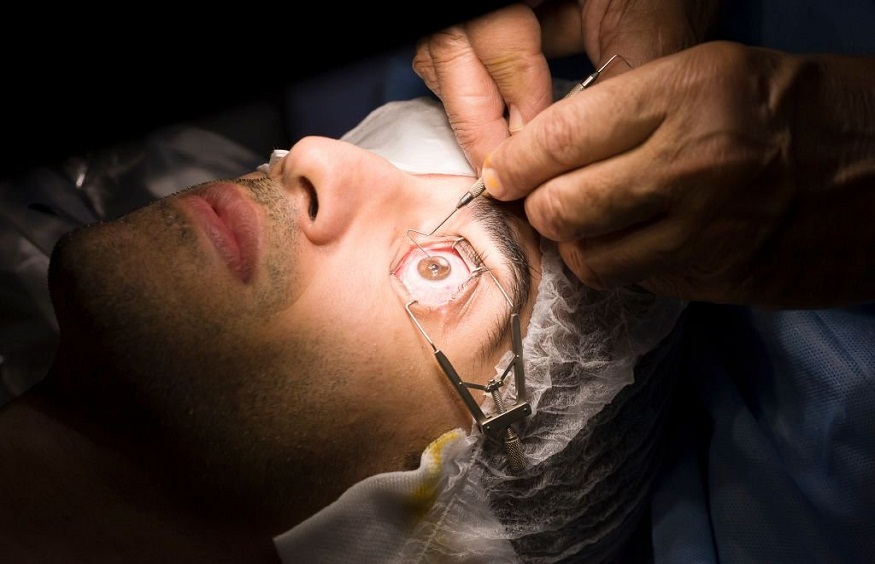The nurse in the pediatric surgery department seems to me to play a key role in taking care of the grandchild during his hospitalization.
This is why it seems essential to me, to continue, to examine more closely the missions and the resources of this professional.
The definition and role of a nurse
First of all, the nurse is defined as a “person who, according to the diplomas which enable him to do so, usually gives nursing care on prescription or medical advice or else in application of the specific role assigned to him.
In other words, the care provided by the nurse stems either directly from a prescription made to him by the doctor, this is what is called the role on prescription of the nurse, or either from his own initiative, it is then the specific role of the nurse.
What is called the ” proper role of the nurse ” therefore represents his ” zone of autonomy […] recognized by the texts governing the exercise of the profession which allows him to take initiatives and carry out the care that he (she) deems it necessary in his/her field of competence ” (Amiec recherche, 2005, p. 240).
Take for example the management of the patient’s postoperative pain by the nurse.
According to article R4312-19 of the Public Health Code (Legifrance, nd), it is the duty of the nursing professional to implement all appropriate means aimed at relieving the patient’s pain by providing care which, if go beyond his field of competence, must be prescribed by the doctor (it may for example be a question of prescribing analgesics), or otherwise which depend on his own skills (it may then be a question of providing advice in terms of positions analgesics, to bring ice to place on the painful area in order to modulate the pain, or to practice relaxation, etc.).
This therefore implies, vis-à-vis their professional responsibility, that the nurse be informed and aware of the acts that fall within their fields of competence or not (Legifrance, nd).
In addition, depending on the service where he works, the missions of the nurse are not always identical and may differ.
The nurse in the pediatric surgery department
In the pediatric surgery department , the duties of the nurse focus in particular on the preoperative and postoperative care of the child.
Preoperative management essentially consists of welcoming the baby and his parents, providing explanations and answers to questions concerning the course of hospitalization, but also creating a bond of trust with the treated and those around them, in order to put the child in the most comfortable conditions before the intervention (Pédiadol, 2014).
Thus, it is during the preoperative care that the nurse can try to manage the anxiety of the grandchild which he may show before the intervention. In relation to this, we will see, the nurse pediatrics has a role to play with the grandchild, but also with his parents.
Preoperative preparation of the grandchild by the nurse
The information and preparation of the nurse with the grandchild and his entourage is an essential step.
Indeed, it should be known that the fact that a child is properly informed and prepared for a surgical intervention clearly contributes to the reduction of his preoperative anxiety.
For this, the information of the child can be done upstream (during the consultation of surgery and anesthesia) and on arrival in the service.
This then requires that the nurse know the course of the hospitalization, the care, and talk to him about what will happen like: the specificities attached to the intervention, the type of pain generally caused, the means of evaluation of this pain and existing treatments, but also techniques for falling asleep during general anesthesia. (Pediadol, 2014).
For the grandchild, it is essential that the professional adapt to him and go at his own pace when delivering his explanations.
Indeed, not telling him anything would be deleterious: the concealment that the child manages to perceive aggravates his anxiety and can even break his bond of trust with adults… However, saying too much could also overwhelm him.
This is why the key lies not so much in saying everything at all costs, but rather in knowing how to remain available to listen and answer your questions (Wanquet-Thibault, 2015).
In addition, it is also important for the nurse to adopt a reassuring attitude towards the child, reminding him that surgery is not a punishment, and that he will go home with his parents as soon as possible.
This contributes to the maintenance of emotional security, and to the creation of a bond of trust with the caregiver.
Indeed, by this, the child understands that the latter attaches importance to his understanding and assists him in his fear. This whole process has a reduction effect on anxiety (Wanquet-Thibault, 2015, pédiadol, 2014).
The nurse’s role with parents
The role of the nurse with the parents, and the entourage in a broader way, also aims to set a reassuring framework in order to allow them the possibility of expressing their anxieties.
Indeed, as mentioned previously, at his age, the grandchild tends to model his attitude on that of his parents… Thus, generally, the fact of managing the anxiety of the parents helps to reduce that of their child.
The relationship established between the carer and the parents helps the child to better understand the hospitalization (Pichard-Léandri, Gauvain-Piquard, 1989). Moreover, the first highlight of the nurse’s care of the parents is the reception.
Manu, a nursing assistant at Trousseau Hospital in Paris, even adds that reception is “perhaps the most important” (Lanté, Benesse, 2017).




